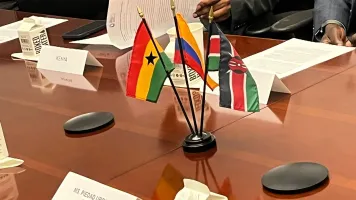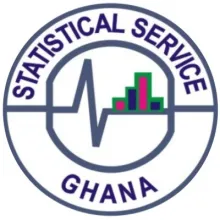On April 3, 2025, the Ghana Statistical Service (GSS) and the Ministry of Gender, Children, and Social Protection (MoGCSP), in collaboration with the Global Partnership for Sustainable Development Data and APC-Colombia, hosted a national validation workshop in Accra as part of the Make Inclusive Data the Norm (MIDN) initiative. The workshop, which is a follow-up to an initial stakeholders consultation last year's September, brought together over 50 representatives from government agencies, civil society, academia, media, and development partners to review the findings of a national landscape assessment on inclusive data, with a focus on Female Genital Mutilation (FGM).
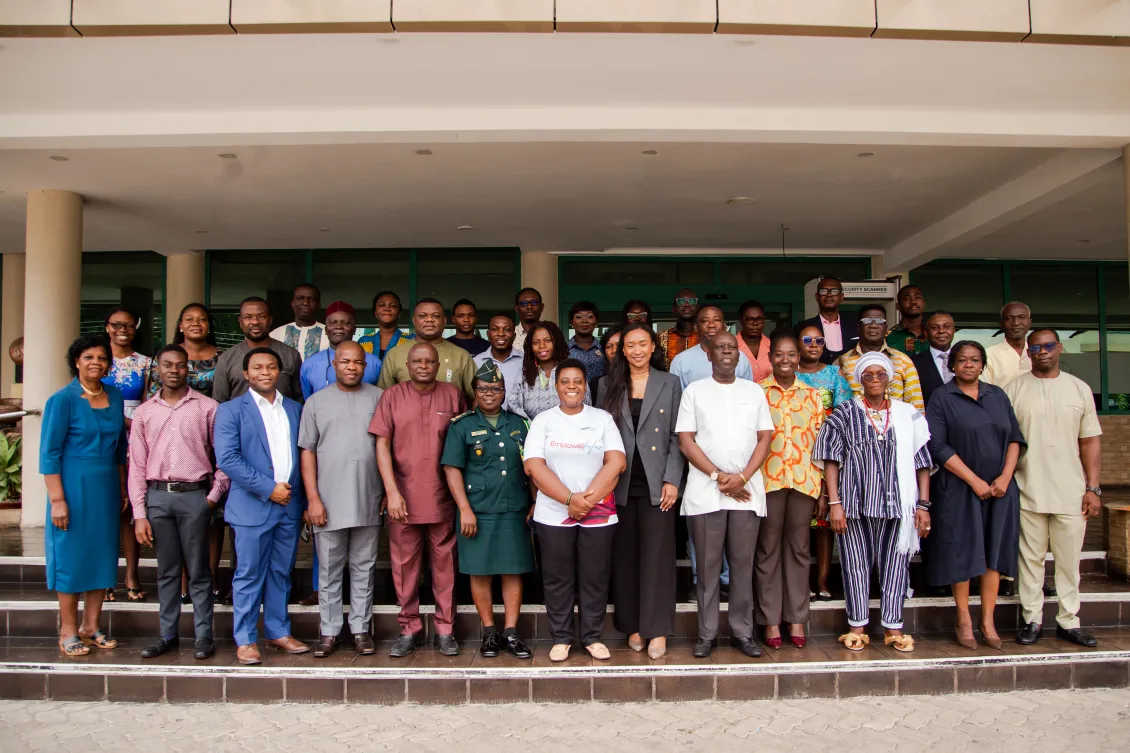
The validation marked a major milestone in Ghana’s efforts to strengthen data systems for SDG indicator 5.3.2, which measures the proportion of women and girls aged 15–49 who have undergone FGM. The workshop also advanced the development of a mobile app prototype by Mobile Web Ghana to enable safe, anonymous, and community-centered data collection.
Victor Ohuruogu, Senior Africa Regional Manager at the Global Partnership, emphasized the urgency of the work:
“There is no current national data by the NSO or Ministry of Gender to compute SDG indicator 5.3.2. We’re also contending with gaps in institutional coordination, limited technical capacity for digital solutions, and insufficient awareness campaigns to address cultural drivers of FGM.”
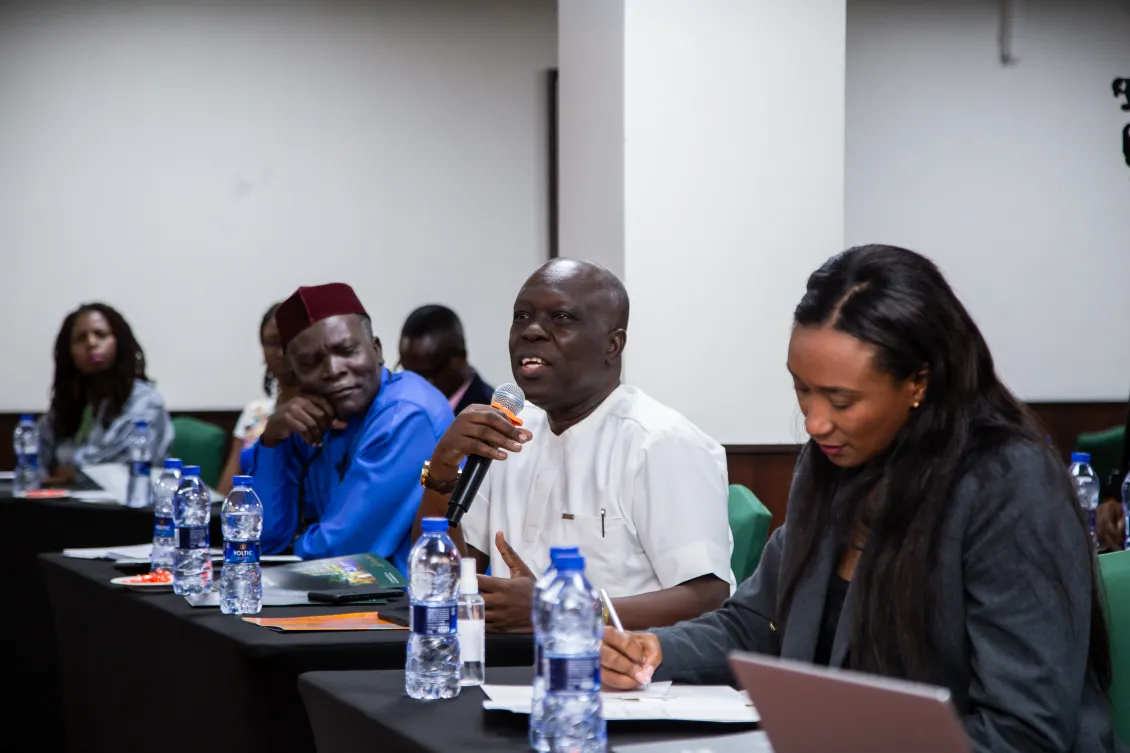
UNFPA Country Representative Dr. Wilfred Ocham called for systemic change in how data is collected and used:
“Inclusive data isn’t just good practice, it’s essential for equitable and sustainable development. Without accurate and representative data, we risk reinforcing the status quo. Let’s invest in inclusive data collection to drive meaningful change.”
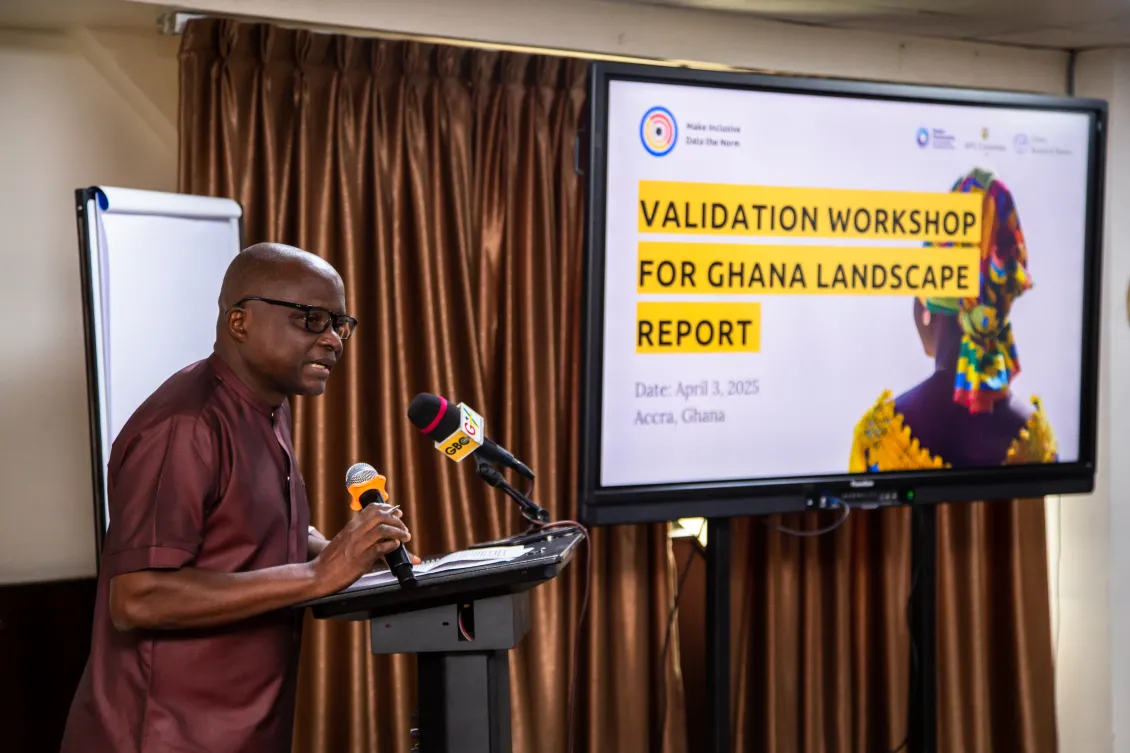
Mr. Godwin Odei-Gyebi, Director and Head of Demographic Statistics at GSS, added:
“Inclusive data is fundamental to achieving the Leave No One Behind agenda, a commitment that resonates strongly with the vision of the Sustainable Development Goals. To achieve this, we must begin by ensuring that marginalized, underrepresented, and vulnerable populations are included in the data processes that inform policies, programs, and decisions. The work we do today will shape the future of inclusive data systems in Ghana, Kenya, and Colombia.”
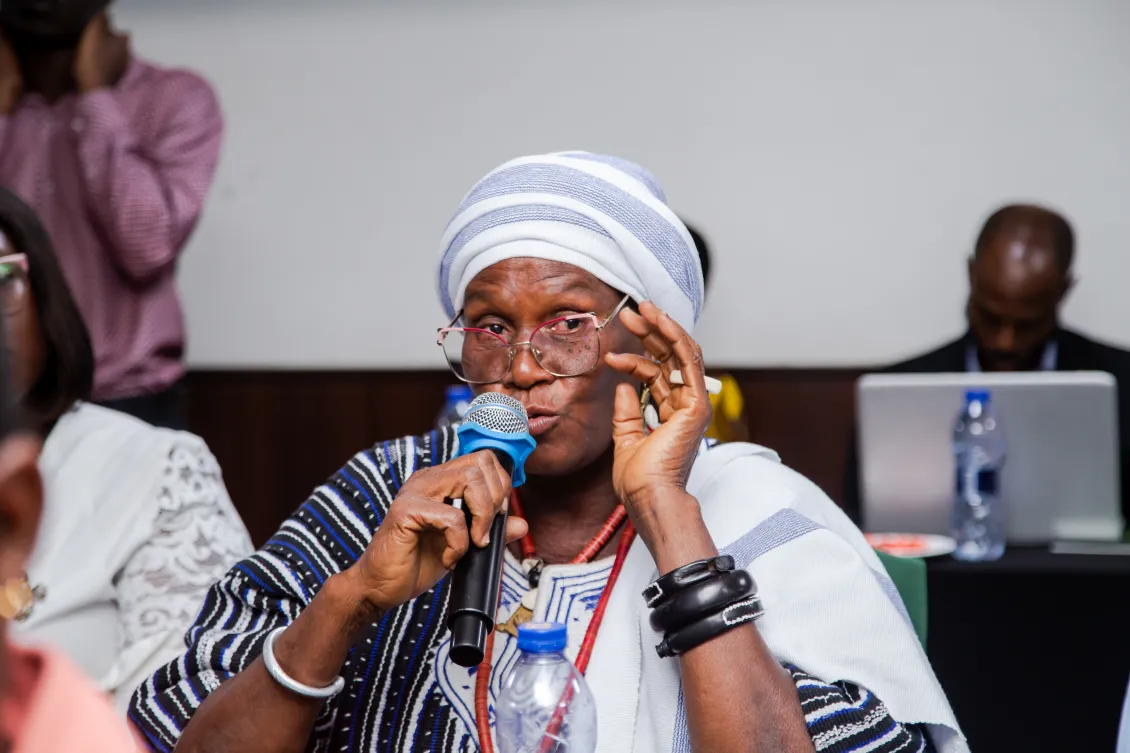
Traditional leadership was also present, with Queen Mother Asalwe Alugivala Rebecca Atulana of the Paga Nakolo Traditional Area in Ghana’s Upper East Region joining the call for data-driven action against harmful social norms. Her presence reinforced the importance of community involvement in both data collection and cultural change.
Prof. Adadow Yidana, Dean of the School of Public Health at the University for Development Studies, highlighted the link between advocacy and sustainable public health messaging:
“We hope that collectively with training, advocacy, and collaboration, we can face the drivers of harmful social norms head on and work to reduce, if not eliminate, this violence against vulnerable members of society, especially women.”
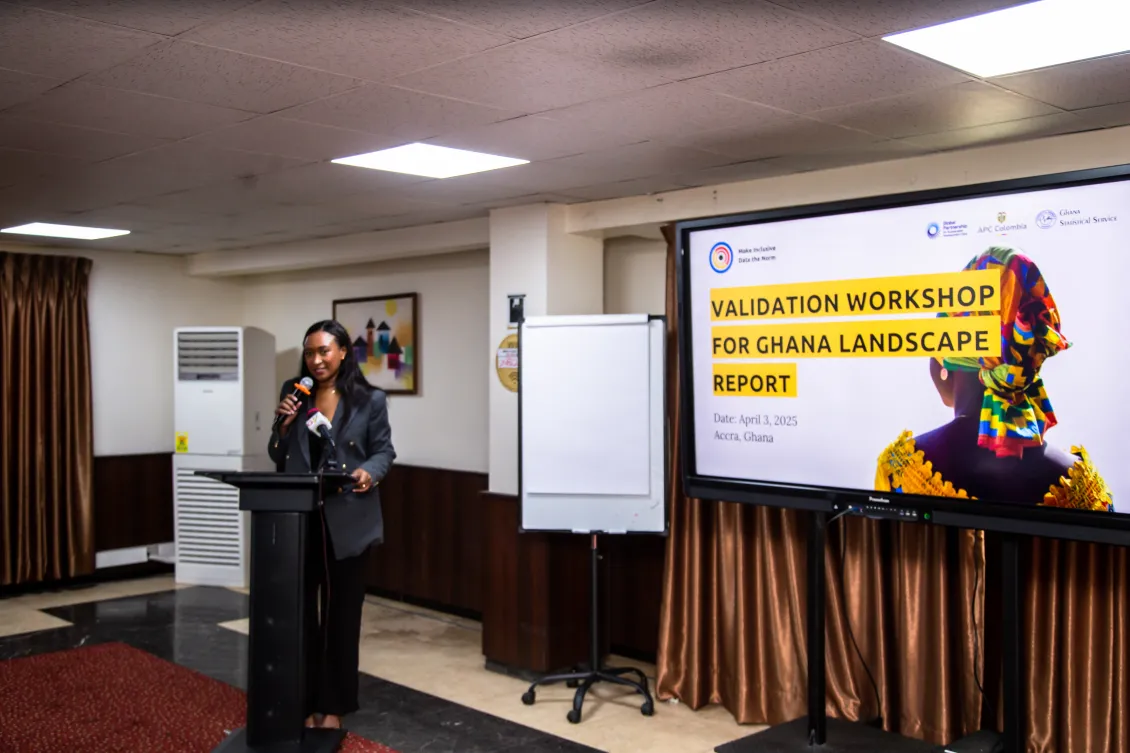
Ms. Kelis Moreno, Counselor of Foreign Affairs at the Embassy of Colombia in Ghana, emphasized the South-South collaboration that anchors the MIDN initiative:
“We believe that working for social justice is one of the first goals of the Colombian government. We continue supporting these kinds of projects because they are essential to achieving social justice in different countries.”
The event, which included diverse participation from national institutions, CSOs, religious leaders, academics, and the media, was covered by Ghana Television (GTV), showcasing Ghana’s commitment to data-driven, community-led development. Watch the GTV report here.
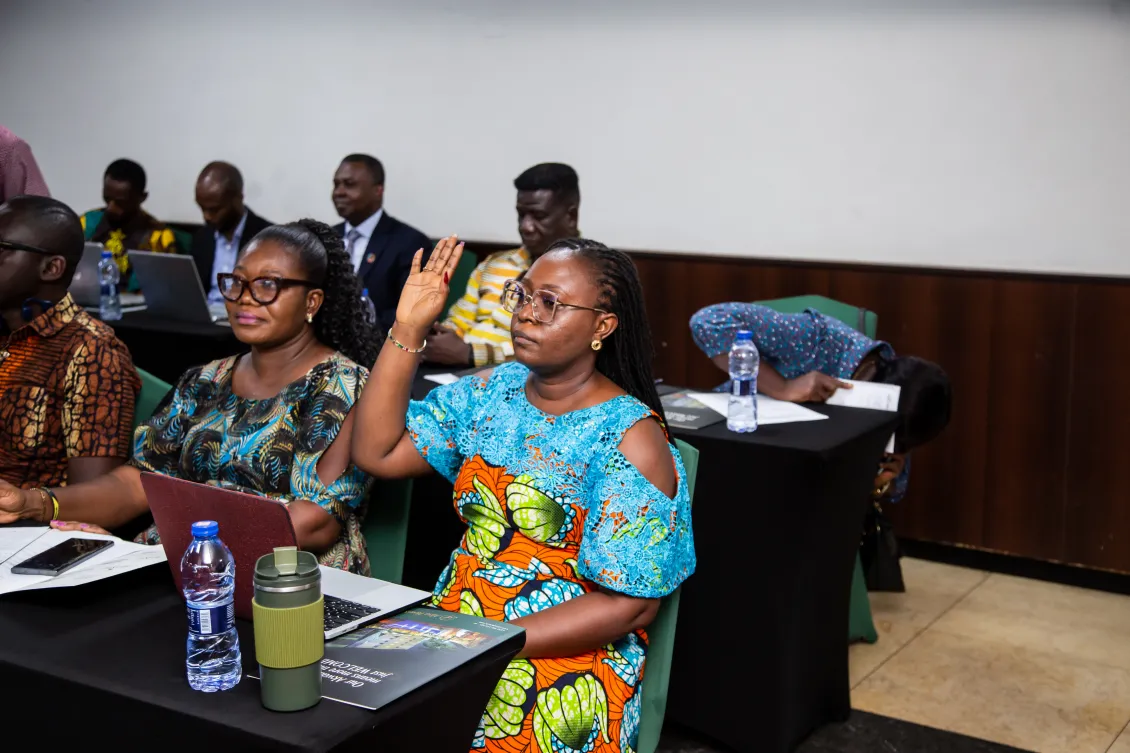
With the validation process complete, the initiative moves into its next phase: training workshops throughout April and May 2025 that will build national capacity in inclusive data governance, digital tools, and FGM-related data strategies.
This collective work is laying the foundation for more responsive, equitable, and sustainable policymaking, ensuring that no one is left behind.
